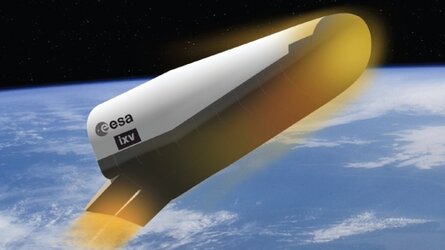Solid propulsion
Solid propulsion technology is often used for a launcher's boosters or main stage to enable a launcher to lift off. A solid rocket booster is usually made up of a case containing blocks of a self-burning mixture called solid propellant. When this burns the gases produced are forced through a nozzle to provide the power for liftoff.
Several new solid propulsion technologies were developed in the frame of the Vega/P80 programme to increase performance and reduce costs. These technologies included:
- monolithic carbon fibre reinforced polymer motor case
- high performance propellant and grain design
- low-density internal thermal insulation
- nozzle using low-cost materials and advanced manufacturing processes
- advanced flex joints
- electro-mechanical actuators
Other technologies under development that could be used on future launch systems include:
- segmentation of carbon fibre reinforced polymer case and skirt/case connection
- development of a low-cost propellant and high energy propellants
- assessing new motor designs with respect to pressure oscillations















 Germany
Germany
 Austria
Austria
 Belgium
Belgium
 Denmark
Denmark
 Spain
Spain
 Estonia
Estonia
 Finland
Finland
 France
France
 Greece
Greece
 Hungary
Hungary
 Ireland
Ireland
 Italy
Italy
 Luxembourg
Luxembourg
 Norway
Norway
 The Netherlands
The Netherlands
 Poland
Poland
 Portugal
Portugal
 Czechia
Czechia
 Romania
Romania
 United Kingdom
United Kingdom
 Slovenia
Slovenia
 Sweden
Sweden
 Switzerland
Switzerland




























